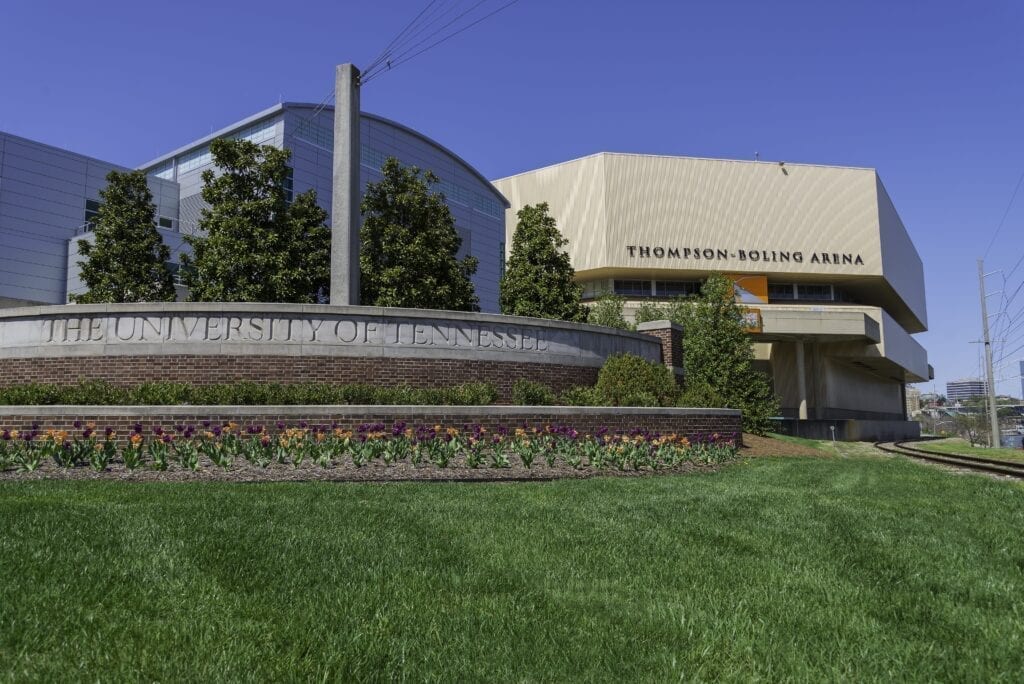Professor explains why cancer drugs are so expensive
UT professor Aubrey Waddell explained why cancer drugs are so expensive at the April 8 Quest Science Forum.

//Photo by Ryan McGill
Across the country, prices of new cancer drugs are skyrocketing while their effectiveness seems to plummet. UT professor of pharmacy Aubrey Waddell explored the factors behind this phenomenon at the April 8 Quest science forum.
“Imagine that you go to buy a new car and you only have $5000, so you think you’ll get a 2004 Honda Accord,” Waddell said. “But they’re selling the Honda for $85000 and the Mercedes for $5000. You’d be very confused. That’s what’s happening with cancer drugs.”
For the audience to understand the sources of this disparity, Waddell first explained that for a new cancer drug to be approved, it would need to go through three phases of clinical trials that would take a minimum of five years.
When AIDS began showing up in 1992, the Food and Drug Administration (FDA) responded to the urgent need for drugs by creating an accelerated approval pathway, which allowed the drugs to be approved and distributed after an abbreviated trial period of about one year.
Seeing how quickly these life saving drugs were administered for AIDS, cancer patients demanded to receive new drugs with the same expedience. Waddell said the FDA reluctantly began allowing cancer medicines through the accelerated approval pathway in 1996.
The catch, he said, is that without the full gamut of clinical trials, the drugs that are being approved to treat or slow cancer come with very little information about their overall long term success rates.
In fact, Waddell said, most of these drugs are approved only on the grounds that they have slowed or halted the spread of the cancer for even a small amount of time in a small percentage of recipients.
Additionally, the people taking these drugs often do not understand that the drug is not supposed to actually cure their disease, but only to slow its progress for an uncertain time period.
“Eighty-one percent of patients with metastatic colorectal cancer did not understand that the chemotherapy being offered to them would not cure their cancer,” Waddell said.
If this large-scale misunderstanding was not a big enough problem, Waddell said, the price tags on these semi-effective drugs is enormous. The costs of the medicines falls largely on the government and insurance companies, who legally are not allowed to negotiate the prices with the suppliers.
“When a third party starts paying, economical ethics disappear,” Waddell said. “The result is a surreal explosion in drug prices.”
One solution Waddell proposed to correct this issue is to mimic Great Britain and establish a “quasi-governmental organization that takes research data and determines rational costs based on real cancer drug value.”
This process would involve creating a system of standards for when Medicare will pay for a drug, based on the cost, overall effectiveness and survival rate of the drug.
“The FDA’s accelerated approval pathway has moved us away from using overall survival as a clinical trial endpoint,” Waddell said, “and has moved oncologists away from discussing overall survival as their primary cancer treatment goal.”
Edited by Courtney Anderson
Featured image by Ryan McGill


This is, unfortunately, a completely inaccurate and misleading article. It may be an accurate description of what Professor Waddell thinks, but it is far too simplistic an explanation of why cancer drugs cost as much a they do, and even more importantly, why FDA uses its expedited approval pathways for some cancer drugs. if the article is accurate, Professor Waddell is seriously misinformed. The prices of some cancer drugs are unjustifiably high, but the price control system used by Great Britain has resulted in cancer patients in that country living substantially shorter lives after diagnosis because they are denied most of the latest advances against cancer based solely on cost. Price controls of that kind are not the answer and there is no chance we will end up with that kind of system. The patient community will not allow it. The solution to the cost of new medicines for all serious and life-threatening diseases, including cancer medicines, is complex, and there are some good ideas out there to begin to deal with it. As for scaling back the FDA’s use of its expedited pathways for cancer drugs to treat terminal forms of the disease, that is just scientifically, medically and ethically nuts and isn’t going to happen. if this article is accurate, Professor Waddell really needs to spend the time to understand why and how those authorities are being used, and why they need to be used even more than they are now. Ideologically driven opinions like the ones reportedly advanced by Professor Waddell are not going to result in solutions that sick American’s, their families, or their physicians will accept. The high cost of new medicines has multiple causes. Great Britain is now methodically backing away from their price control system that has resulted in denial of life-extending and even life-saving treatments to countless patients in the UK. We shouldn’t repeat their mistake.